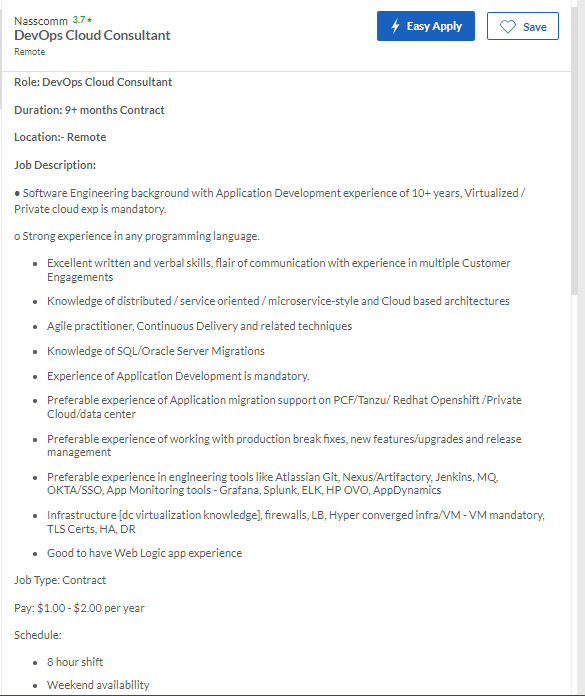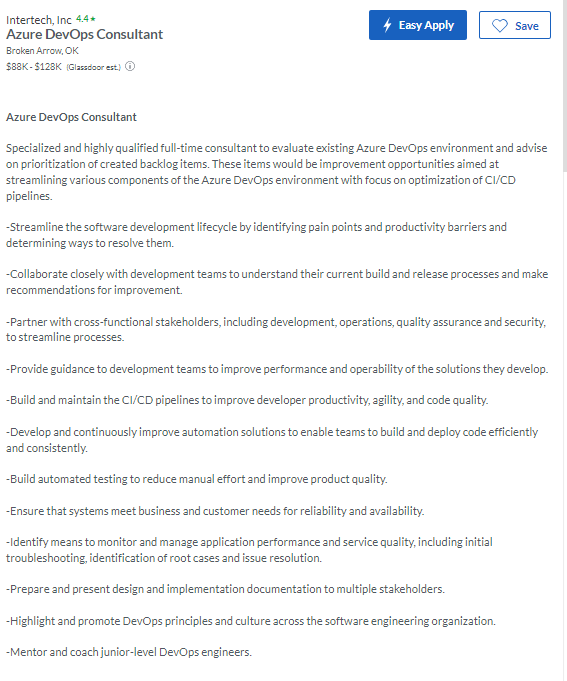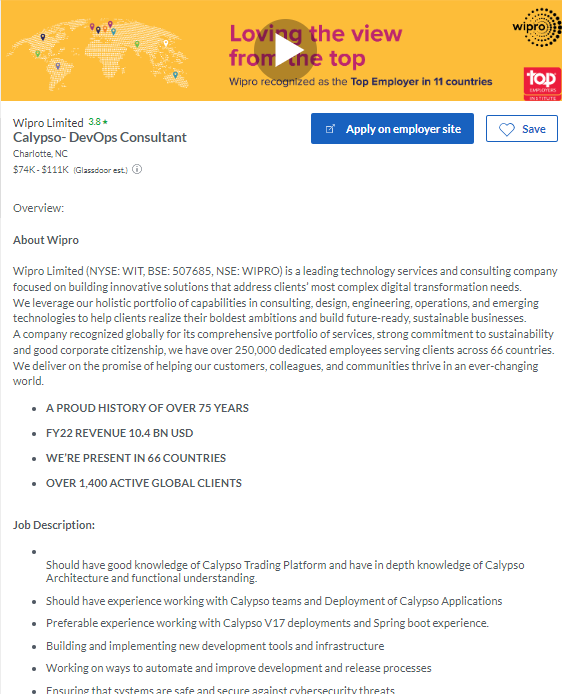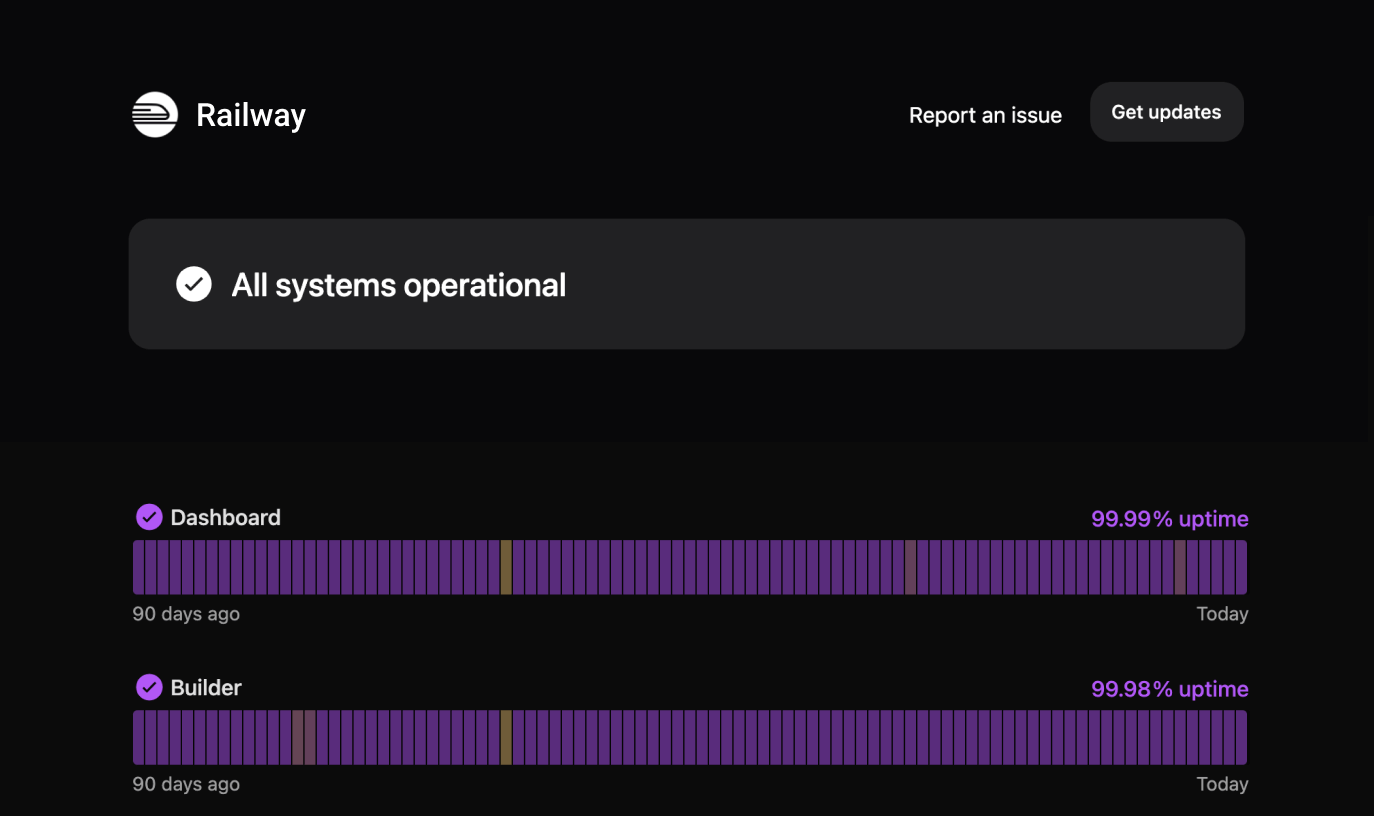How to Hire a Great DevOps Consultant for Your Business?

DevOps can be difficult to manage, especially if it’s not your area of expertise. In these cases, it’s helpful to hire a DevOps consultant who can give you advice and help you implement tools like Instatus to optimize your workflow. With the aid of a DevOps professional, you can streamline your DevOps and produce results much faster.
Before we go into the whole hiring process, let’s discuss what a DevOps consultant actually does.
What Does a DevOps Consultant Do?
A DevOps consultant is a professional with in-depth knowledge of various tools and DevOps principles. They help you solve specific issues, elevate your workflow, and teach you how to implement or use various practices. DevOps consultants essentially guide and advise you whilst helping you produce high-quality products at a faster rate.
DevOps Consultant Job Duties and Requirements
Duties
- Collaborate with development teams to build and manage secure, reliable infrastructure
- Work with clients to implement DevOps solutions that align with their business objectives
- Give recommendations to clients on how to improve their DevOps processes
- Monitor software performance and help troubleshoot issues that occur
- Utilize technologies such as BTP and SAC to deliver forward-thinking solutions
- Create documentation for deployment methodologies, infrastructure design, and other aspects of DevOps
- Assess current DevOps practices and suggest changes or new practices to increase efficiency
- Support development teams in implementing new tools
- Recognize security threats and design solutions to mitigate them
- Work with cloud platforms like Azure, GCP, and AWS
Requirements
- Proficiency in DevOps tools such as Kubernetes, AWS, Ansible, and Terraform
- Expertise in programming languages like Python and Bash
- Experience with DevOps processes and principles
- Strong knowledge of continuous integration and continuous deployment (CI/CD)
- Familiarity with operating systems like Windows and Linux
- Proficiency in developing scripts and tool integrations
- DevOps certification (e.g., Azure Administrator Associate certification)
- Familiarity with SaaS, IaaS, and PaaS
- Experience with data security and server systems
- Knowledge of SAC, Gardener, and BTP
- Bachelor’s degree in Computer Science or a similar field
- Work experience in DevOps engineering or a similar field
Skills
- Excellent communication skills
- Great collaboration skills
- Problem-solving skills
- Proactive worker
Why Should You Hire a DevOps Consultant?
Cost-Effective Services
DevOps consultants help you choose cost-effective solutions and optimize parts of your DevOps lifecycle, such as software deployment and DevOps testing. With their guidance, you can make quicker and smarter decisions to minimize time wastage.
Expertise in Multiple Domains
DevOps consultants have expertise in multiple areas, so that they can help with many different tasks, such as infrastructure management and DevOps security. They deeply understand a variety of tools and techniques, which is knowledge your DevOps team may be lacking.
Save Money (and Stress)
Hiring a consultant means less stress since they handle difficult decisions for you. They also tailor DevOps solutions to meet your specific business goals, which can include saving money and integrating more automation tools.
Salary Benchmarks For a DevOps Consultant

The average total pay for DevOps consultants in the US is $135,887 per year, with the average salary (base pay) being $108,350 per year. Depending on what company you work at and your level of experience, DevOps consultant salaries can range from $85,000 to $221,000 annually.
DevOps Consultant vs. DevOps Engineer
Both DevOps consultants and DevOps engineers work with development teams to increase their overall efficiency. However, there are differences between the two in terms of their actual responsibilities.
DevOps consultants offer guidance and advice on tools and methodologies to help teams solve certain issues.
DevOps engineers, however, focus on implementing and improving DevOps tools and techniques. They’re more hands-on and practical whilst consultants mainly share their knowledge and expertise to development teams.
DevOps Consultant Job Listing Examples
DevOps Cloud Consultant

Azure DevOps Consultant

Calypso DevOps Consultant

How to Hire a Great DevOps Consultant for Your Business
Assess Their Technical Expertise
Your DevOps consultant must have expertise in the tools and techniques relevant to your business operations. For example, if you work with platforms like AWS and Docker, you should hire a consultant with proficiency or knowledge in those tools. The same goes for operating systems (e.g., Linux) and actual DevOps practices, like cloud computing and data security.
List Responsibilities
Make a list of responsibilities for your DevOps consultant to get a better idea of what technical expertise you’re looking for. Here’s an example:
Responsibility: Develop and improve automation solutions to enable teams to build and deploy code efficiently and consistently.
Technical Expertise Required: Strong knowledge of DevOps processes, proficiency in automation tools, and in-depth knowledge of programming languages like Python, Perl, and others.
List Pain Points
Alternatively, list out your current pain points in regard to your DevOps workflow, such as:
- Lack of communication between operations and development teams
- Lack of automation in the DevOps process
- Inefficient software deployment frequency
- A high number of bugs occur after deployment
Consider how each pain point could be solved by a DevOps consultant and list out these solutions like so:
Problem: Inefficient software deployment frequency
Solution: Work with development teams to implement DevOps solutions that increase deployment frequency.
Make sure you fully understand the role of a DevOps consultant before creating these lists. Focus on duties that revolve around the following areas:
- Analyzing and improving DevOps processes
- Roadmapping or educating teams on implementing tools and methodologies
- Guiding or working with teams to develop solutions to certain problems (or helping you reach certain objectives)
Hire a Consultant From an Established Agency
When it comes to actually hiring a DevOps consultant, you can post on job boards to attract applicants or outsource one from an established agency. Outsourcing a consultant means you won’t have to pay them full-time. Instead, you pay on a project-by-project basis.
These DevOps consultants should also have a fair amount of experience from working at the agency, so you’ll be saving on training costs as well.
Check the Communication Skills of the Consultant
A DevOps consultant usually works closely with development and operations teams, so great communication skills are key. They must be excellent collaborators and work well with your other DevOps employees. That means they should:
- Consistently communicate with DevOps teams
- Keep their communication channel open in case of emergencies
- Be able to articulate their thoughts (to avoid miscommunication) clearly
- Be open to collaboration and working in a team
- Have a friendly and comfortable demeanor
- Be quick at responding to messages
If possible, choose a DevOps consultant with a good level of experience working with DevOps teams. If you’re hiring from an agency, ask for someone with high communication skills.
Understand Their Business Model and Service Offerings
When outsourcing a DevOps consultant, you must be aware of their service offerings and pricing. What specific services are they willing to provide, and do they align with your business goals? Does their business model suit your budget and allow you to make changes during projects?
You should opt for a model that gives you the freedom and flexibility to change your services mid-project since DevOps requires a lot of trial and error. If a certain tool isn’t performing as well as expected or something else goes wrong, you’ll need solutions devised on the spot.
As for pricing, some consultants have flexible payment structures whilst others are fixed. Ideally, you should be able to negotiate a price that suits you both. Before you start searching for a DevOps consultant, decide on a hiring budget (pick a range if you’re unsure). Negotiations will go much smoother if you already have a price in mind.
Job Boards
Alternatively, if you want to hire an in-house employee via job boards, look at the average salary range for DevOps consultants in your country. Consider the position’s seniority level (a high-level position means a higher salary) when deciding on an actual salary. If your chosen candidate has a lot of experience, they may negotiate an even higher salary.
Avoid Jumping Conclusions
Working with a DevOps consultant doesn’t mean your problems will instantly get fixed. It takes time and a lot of experimentation to come up with the perfect solution for your business. This means you need to work extensively with your consultant and be patient when testing out new tools or strategies.
It’s very much a joint operation that involves a lot of collaboration and transparency across the board. Everyone in your DevOps team should be involved in this consultation as every DevOps stage affects one another. Take your time and avoid jumping to a conclusion without thoroughly testing a new solution.
Similarly, finding the right candidate for the consultant position can also take a lot of time. Get input from all relevant parties since they’ll have to work alongside this new consultant. It should be someone they’re comfortable with and who’s also familiar with all the tools and practices you use in your company.
Conclusion
DevOps comes with many challenges, so sometimes, you need the help of a DevOps consultant. With an expert advising you, your DevOps workflow can improve greatly, but you’ll first have to hire the perfect candidate. Since DevOps requires a lot of technical knowledge, the best consultants are proficient in various tools, including Instatus.
Here at Instatus, you can create a beautiful status and monitor your uptime with little to no effort. Get your free status page today to start automating your software monitoring.
Get ready for downtime
Monitor your services
Fix incidents with your team
Share your status with customers


